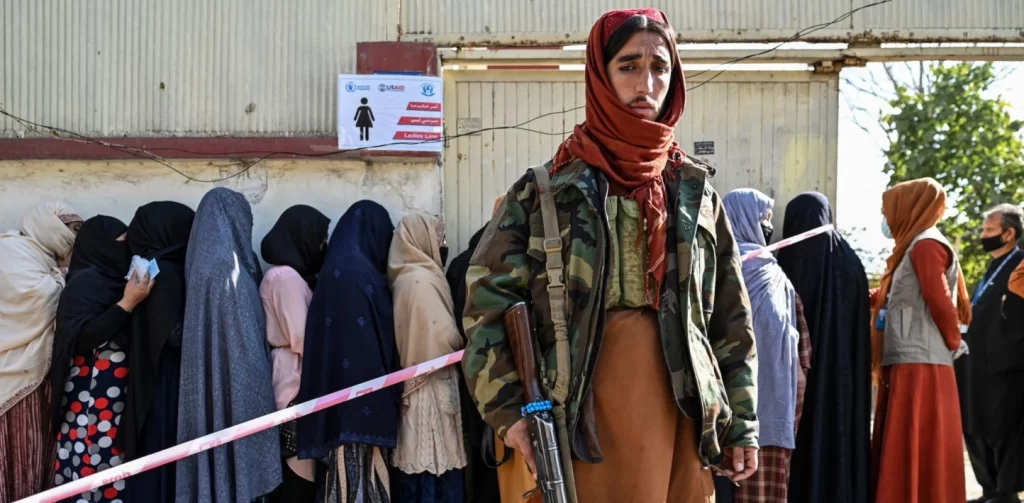
Afghanistan: Survivors of gender-based violence abandoned following Taliban takeover – new research
Essential services for women and girl survivors of gender- grounded violence in Afghanistan have been devastated following the Taliban’s preemption of the country, Amnesty International said moment.
In 26 new interviews, survivors and service providers told Amnesty International that the Taliban closed harbors and released detainees from captivity, including numerous condemned of gender- grounded violence offences.
Numerous survivors – as well as sanctum staff, attorneys, judges, government officers, and others involved in defensive services – are now at threat of violence and death.
Women and girl survivors of gender- grounded violence have basically been abandoned in Afghanistan. Their network of support has been disassembled, and their places of retreat have all but faded,” said Agnès Callamard, Amnesty International’s Secretary General.
“ It defies belief that the Taliban threw open captivity doors across the country, with no study of the pitfalls that condemned perpetrators pose to the women and girls they victimized, and to those who worked on survivors’behalf.
“ To cover women and girls from farther violence, the Taliban must allow and support the reopening of harbors and the restoration of other defensive services for survivors, reinstate the Ministry of Women’s Affairs, and insure that service providers can work freely and without fear of retribution.”
Amnesty International is calling on the transnational community to give immediate and long- term backing for similar defensive services, void survivors and service providers facing imminent peril, and prompt the Taliban to uphold their scores to women and girls, particularly those who survive or are at threat of gender- grounded violence.
On 26 and 29 November, Taliban prophet Suhail Shaheen told Amnesty International via telephone “ There’s no place for violence against women and girls, according to the rules of Islam … The women facing domestic violence can be appertained to the courts, and the courts will hear their cases … and their grievances will be addressed.”
Amnesty International canvassed survivors and individualities involved in defensive services in the businesses of Badghis, Bamiyan, Daikundi, Herat, Kabul, Kunduz, Nangarhar, Paktika, Sar-e Pul, and Takhar.
Before the Taliban’s preemption, numerous women and girl survivors had access to a civil network of harbors and services, includingpro-bono legal representation, medical treatment, and psychosocial support.
Survivors were appertained into the system from parochial and capital services of the Ministry of Women’s Affairs and the Human Rights Commission, as well as from harbors, hospitals, and police stations across the country.
The system was far from perfect, but served thousands of women each time in Afghanistan, where nine out of 10 women experience at least one form of intimate mate violence in their continuance, according to UNAMA.
According to service providers, the most common cases of gender- grounded violence involved beating, rape, other forms of physical and sexual violence, and forced marriage. Survivors frequently demanded critical medical treatment.
One service provider who was grounded in Nangargar said “ (The cases) were veritably extreme. We had a case where a man took the nails off his woman’s fritters … (One) man took a crowbar and hulled off his woman’s skin … There was one woman who faced a lot of abuse from her family. She could n’t indeed use the restroom presently.”
As the Taliban took control of Afghanistan, the system of defensive services collapsed. Harbors were closed, and numerous were pillaged and appropriated by members of the Taliban. In some cases, Taliban members wearied or hovered staff.

